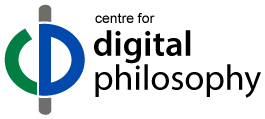- Submit
-
Browse
- All Categories
- Metaphysics and Epistemology
- Value Theory
- Science, Logic, and Mathematics
- Science, Logic, and Mathematics
- Logic and Philosophy of Logic
- Philosophy of Biology
- Philosophy of Cognitive Science
- Philosophy of Computing and Information
- Philosophy of Mathematics
- Philosophy of Physical Science
- Philosophy of Social Science
- Philosophy of Probability
- General Philosophy of Science
- Philosophy of Science, Misc
- History of Western Philosophy
- Philosophical Traditions
- Philosophy, Misc
- Other Academic Areas
- More
Public Preferences about Fairness and the Ethics of Allocating Scarce Medical Interventions
In Meng Li & David P. Tracer (eds.), Interdisciplinary Perspectives on Fairness, Equity, and Justice. Springer. pp. 51-65 (2017)
Abstract
This chapter examines how social- scientific research on public preferences bears on the ethical question of how those resources should in fact be allocated, and explain how social-scientific researchers might find an understanding of work in ethics useful as they design mechanisms for data collection and analysis. I proceed by first distinguishing the methodologies of social science and ethics. I then provide an overview of different approaches to the ethics of allocating scarce medical interventions, including an approach—the complete lives system—which I have previously defended, and a brief recap of social-scientific research on the allocation of scarce medical resources. Following these overviews, I examine different ways in which public preferences could matter to the ethics of allocation. Last, I suggest some ways in which social scientists could learn from ethics as they conduct research into public preferences regarding the allocation of scarce medical resources.Author's Profile
Analytics
Added to PP
2017-10-02
Downloads
1,586 (#9,226)
6 months
214 (#12,072)
2017-10-02
Downloads
1,586 (#9,226)
6 months
214 (#12,072)
Historical graph of downloads since first upload
This graph includes both downloads from PhilArchive and clicks on external links on PhilPapers.
How can I increase my downloads?

